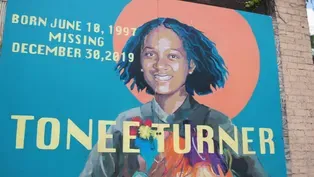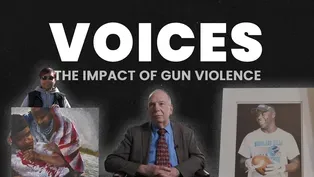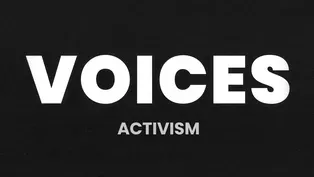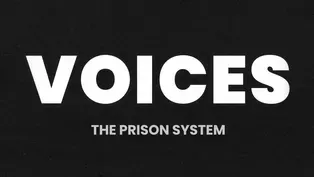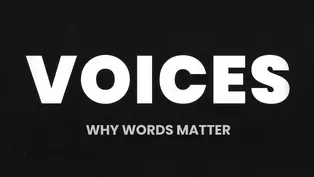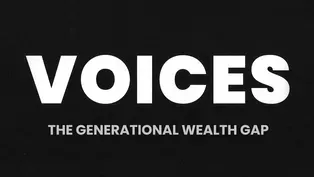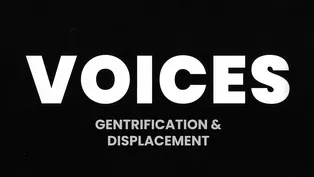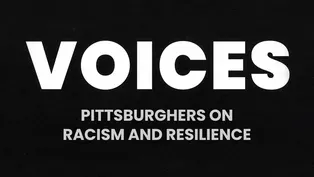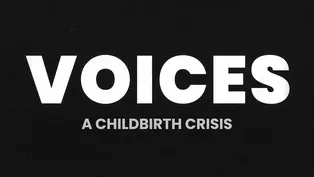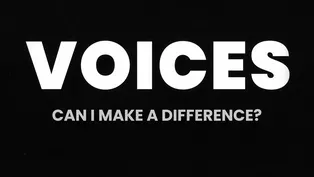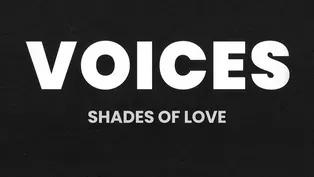WQED Digital Docs
VOICES: Refugees: A New Life in Pittsburgh
6/6/2023 | 7m 18sVideo has Closed Captions
Every year, hundreds of refugees arrive in Western Pennsylvania, hoping to start new.
Every year, hundreds of refugees arrive in Western Pennsylvania, hoping to start new and better lives. In this episode of VOICES, we meet refugees who endured grueling journeys to make their way from Latin America to Pittsburgh. Theirs is the story of resilience, optimism and gratitude for their warm welcome here.
Problems with Closed Captions? Closed Captioning Feedback
Problems with Closed Captions? Closed Captioning Feedback
WQED Digital Docs is a local public television program presented by WQED
WQED Digital Docs
VOICES: Refugees: A New Life in Pittsburgh
6/6/2023 | 7m 18sVideo has Closed Captions
Every year, hundreds of refugees arrive in Western Pennsylvania, hoping to start new and better lives. In this episode of VOICES, we meet refugees who endured grueling journeys to make their way from Latin America to Pittsburgh. Theirs is the story of resilience, optimism and gratitude for their warm welcome here.
Problems with Closed Captions? Closed Captioning Feedback
How to Watch WQED Digital Docs
WQED Digital Docs is available to stream on pbs.org and the free PBS App, available on iPhone, Apple TV, Android TV, Android smartphones, Amazon Fire TV, Amazon Fire Tablet, Roku, Samsung Smart TV, and Vizio.
Providing Support for PBS.org
Learn Moreabout PBS online sponsorshipMore from This Collection
Video has Closed Captions
When a person of color goes missing, are they given the same consideration as other races? (11m 24s)
VOICES: The Impace of Gun Violence
Video has Closed Captions
While no two stories are the same, the impact of gun violence affects nearly everyone. (9m 38s)
Video has Closed Captions
Meet people who were moved by societal concerns to take action for the first time. (10m 48s)
Video has Closed Captions
Hear from formerly incarcerated local citizens on their experiences and hopes for change. (11m 8s)
Video has Closed Captions
This episode explores how derogatory terms enter the lexicon, and why words matter. (5m 52s)
VOICES: The Generational Wealth Gap
Video has Closed Captions
An absence of generational wealth among minority families often leads to obstacles. (7m 32s)
VOICES: Gentrification & Displacement
Video has Closed Captions
We look at gentrification and its impact on Pittsburgh's marginalized communities. (9m 59s)
VOICES: Pittsburghers on Racism and Resilience
Video has Closed Captions
Pittsburghers of different backgrounds share their encounters with discrimination. (10m 45s)
Video has Closed Captions
Decades of inequity in the healthcare system have led to a crisis in Black maternal health (10m 9s)
VOICES: Can I Make a Difference?
Video has Closed Captions
Pittsburgh area youth talk about today’s social climate, racism, inequity, and more. (6m 31s)
Video has Closed Captions
Two couples of reflect on their personal experiences with interracial relationships. (10m 26s)
Providing Support for PBS.org
Learn Moreabout PBS online sponsorship(gentle music) (speaking foreign language) - [Interpreter] It was really difficult because I could not be who I truly was for fear of being attacked.
So, I knew I couldn't go back.
(gentle music) My name is George Marcus and I'm a refugee from Venezuela.
My name is Rony Alvarez.
I'm a refugee and I come from Venezuela.
(speaking foreign language) We met each other 5-1/2 years ago.
- [George] In Venezuela.
- [Interpreter] So, we met and we were friends and then it developed into a sentimental relationship.
(gentle music) It was terrible.
Venezuela is right now in a crisis.
It's been a crisis for many years now.
It is a bad situation politically, socially, economically, but it is also a country where being homosexual is not well regarded.
So, when I came out as a homosexual, it was really hard for my family.
It's a very traditional family.
Over time, they have learned to accept it.
We can't get married in Venezuela, we can't have kids, we can't adopt children.
In Venezuela, I was a reporter, a journalist and I was threatened.
I had a death threat against me.
(gentle music) We had to change from one bus to another frequently.
One suitcase, just one.
My whole life in one suitcase.
Shortly afterwards, the pandemic hit.
So, we found ourselves trapped in Ecuador without being able to work or move from there.
(gentle music) It was a very long trip.
(gentle music) I am living in the United States, so you need to speak English.
But I still worry about saying the wrong word.
- It's harder for you to access resources and get around when you don't know the language.
Even something as simple is taking the bus is made 100 times harder when you can't know what it says on the top of the bus or ask somebody is this the right place.
I am Andrea Rivera and I am a refugee medical caseworker with Jewish Family and Community Services.
I was a refugee from Honduras 10 years ago and now I help people get resettled here in Pittsburgh.
We came here 10 years ago because a coup was taken over from our country.
My family was involved in politics as political activists and we were targeted and persecuted as a result.
(gentle music) We left the country because of that and then resettled here in New York.
And then Pittsburgh.
(gentle music) (upbeat music) But when you say numbers, I do have to think about it more, especially because you guys have a culture of saying twelve hundred instead of one thousand two hundred.
That makes it very hard for me and I always have to ask for clarification every time somebody says that and I notice in Pittsburgh, it took me a while, you guys say oh instead of zero.
So, like 4-1-2-oh-three-three instead of zero-three-three.
(upbeat music) My family thinks that I have come full circle, that I have given back to the people who helped us and I'm helping us 10 years ago.
I'm the first one to do a lot of things because I was the oldest, so I think they always tell me they're very proud.
I think what's nice about Pittsburgh is that's surprising to a lot of people there's a lot of different cultures here.
New York, everybody was like there's a higher concentration of Hispanic.
Over here I think there's just like pockets of a lot of different cultures and it makes it easy for anybody to come here and then kind of find their own pocket and find their own place in the city.
(speaking foreign language) - [Interpreter] The most important thing is that I have rights as a homosexual here that I did not have in Latin America.
I am surprised because I even saw one man kiss another man in the bus and I just thought, wow, this is very different than in Venezuela.
They would hit them, they would insult them.
(speaking foreign language) So, the freedom that you have here is priceless.
(gentle music) - I feel like I was helped by an organization, now I'm helping others on the other side.
It's rewarding because I get to make a change in somebody's life.
It is a great city to resettle.
My family built everything they have from the ground up in this city because they were welcomed, because they were able to build a support system, because they were given support by the city.
(speaking foreign language) - [Interpreter] And you come to Pittsburgh and then we have found the door is open to us in all senses.
Opportunities, lots of opportunities.
We have freedom here.
(speaking foreign language) (gentle music)
WQED Digital Docs is a local public television program presented by WQED
